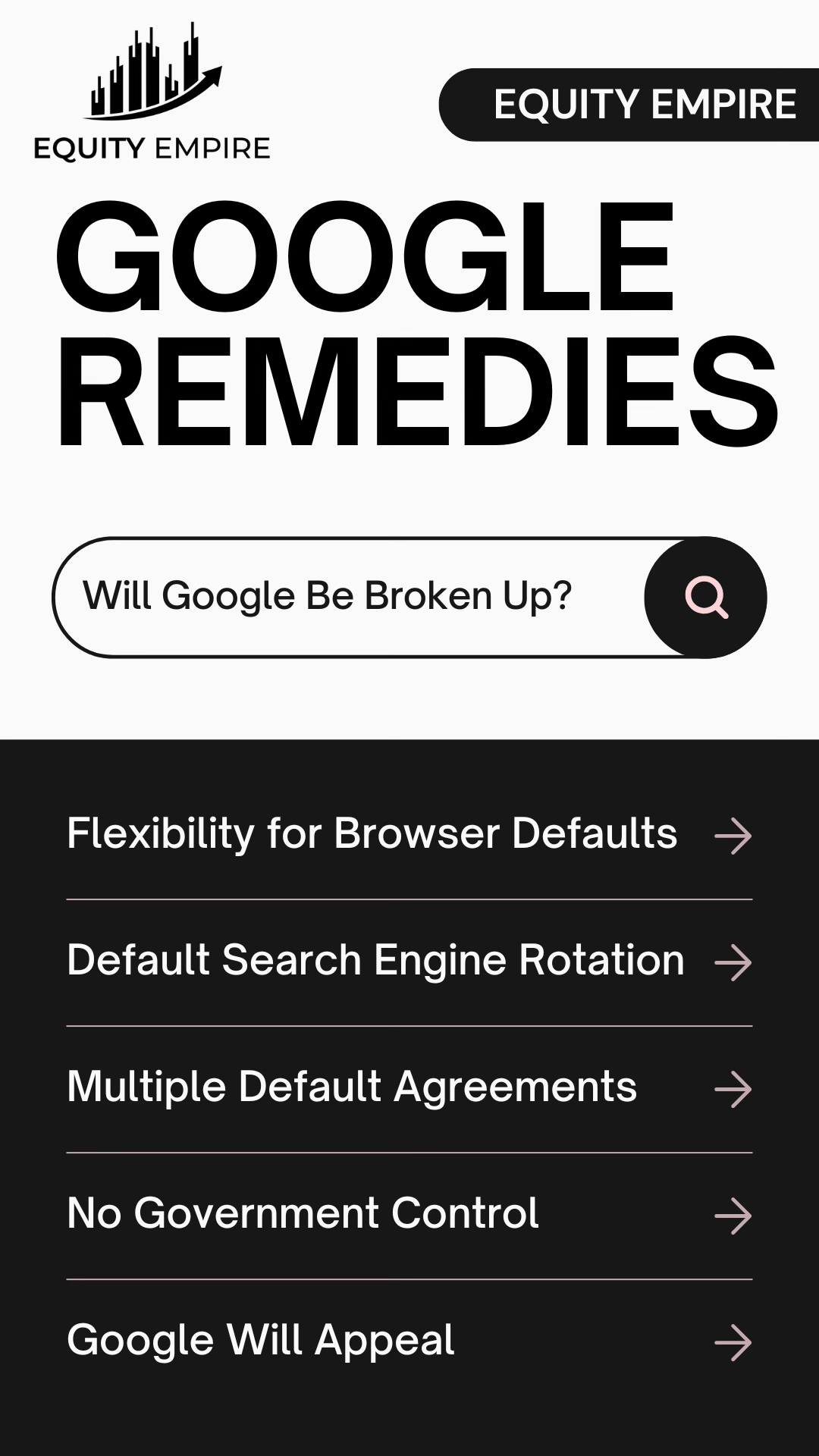Google Chrome Auction? Not So Fast: Google Proposes Alternatives to DOJ's Antitrust Demands
What are the next steps in the ongoing legal battle between the Department of Justice and Google regarding the Chrome browser and its default search engine for devices?
Google Chrome browser going to the auction block sometime soon?
Not so fast.
Recall a month ago the DOJ recommended (among other things) that Google be forced to sell its popular Chrome browser.
Read about it here if you need to catch up:
Google Under Fire: DOJ Pushes for Chrome’s Forced Sale
In what will likely be viewed as a landmark case against Google, a U.S. District Court has found the tech giant liable for maintaining monopolies in the general search and search advertising markets.
What we got a month ago was the DOJ proposal.
Needless to say the DOJ is made up of a bunch of people who collect a check from the American taxpayer each month and have no real experience running a business.
And it should be no surprise that the DOJ essentially suggested creating a new tax payer funded committee to oversee parts of Google’s business going forward.
If we’re going to allow the DOJ to oversee American companies, it might as well put China’s Xi Jinping in charge.
Google is going to do everything it can to make sure this doesn’t happen.
That’s why this week Google proposed remedies to address the DOJ antitrust claims.
Here are the detailed points of Google's proposed remedies:
Changes to Search Distribution Agreements:
Flexibility for Browser Defaults: Google proposed that browser providers should have the ability to set different default search engines across various platforms (e.g., different defaults for iPhones vs. iPads) and for different browsing modes. This would give browsers more control over search engine defaults, allowing for more competition.
My take: It’s doubtful a meaningful amount of users would set default browsers depending on which device they are using. What would be interesting is if it opened up the competitive bidding for different types of search queries. For example … could Amazon pay to be the default search result when someone searches for a product?
Default Search Engine Rotation: Google suggested allowing browsers to change their default search provider at least every 12 months, aligning with what the court deemed "presumed reasonable" under antitrust law. This would introduce periodic competition for default status.
My Take: From an advertiser’s perspective, this is intriguing. If an emerging search engine unexpectedly becomes the default option, it could potentially reduce competition in the ad bidding landscape, creating opportunities for business owners.
Multiple Default Agreements: The proposal includes the possibility for device makers to enter into multiple default agreements, thus allowing for more diversity in default search providers.
My Take: This is a good idea. It would require the 2 or 3 default options to compete for the users. Browsers that offered a better experience would gain the most users. Additionally for platform providers like Apple (and even Google) this would create bidding wars that likely exceed today’s default payments.
Compliance and Monitoring:
Mechanism for Compliance: Google proposed a "robust mechanism" to ensure compliance with the court's order without giving the government extensive control over product design or user experience. This would involve self-regulation or possibly third-party audits to ensure adherence to antitrust remedies without unnecessary government intervention.
My Take: It would be better for Google to be forced to sell Google Chrome rather than the government create an oversight committee to control design and user experience.
No Structural Breakup:
Avoiding Divestitures: Unlike the DOJ's more aggressive proposals which included divesting Chrome or potentially Android, Google's remedies steer clear of any structural breakup. Google argues that such drastic measures would harm consumers, developers, and small businesses by breaking apart integrated services that are popular and useful.
My Take: Google’s ad business wouldn’t go away no matter what. Other search engines actually run Google’s ad inventory because it’s the most robust and easiest to scale.
Appeal and Future Steps:
Google Will Appeal: Google has stated they will appeal the court's original decision but are required to propose remedies before the appeal process, focusing on search distribution contracts rather than a broader restructuring of their business.
As it stands now a judge is expected to weigh both the DOJs and Google’s remedies in April with a final ruling expected in the summer of 2025.
There’s also a possibility the DOJ under the Trump administration offers a settlement that differs from what the Biden DOJ has purposed.
Overall I would say that Google’s proposals would be particularly bullish for platform providers like Apple and even Google itself to generate revenue from default search providers.
And remember, this isn’t an attack on Google’s core business, which is controlling the online ad auction process.
Additionally … despite the popularity and increased usage of AI tools like ChatGPT, Grok, Gemini or Anthropic, the users of these tools are still a minority of users and it’s unlikely that this changes in the short run.
Google stock just confirmed a new higher-high, meaning that pull backs should be bought. The first area that’s interesting is back in the $170s.
The first several weeks of the Trump administration is just a few weeks away and I would be on high alert as volatility could show up and you’ll want to be particularly aggressive if that’s the case.
Until next time, Happy New Year!!
And be on the lookout for our paid service announcement coming soon!
Colin







Thanks Colin! Happy New Year to you and your family as well ☺️
Thank you!!